Winning the Fight at Eskdale
———-
By Alfred Segal
———-
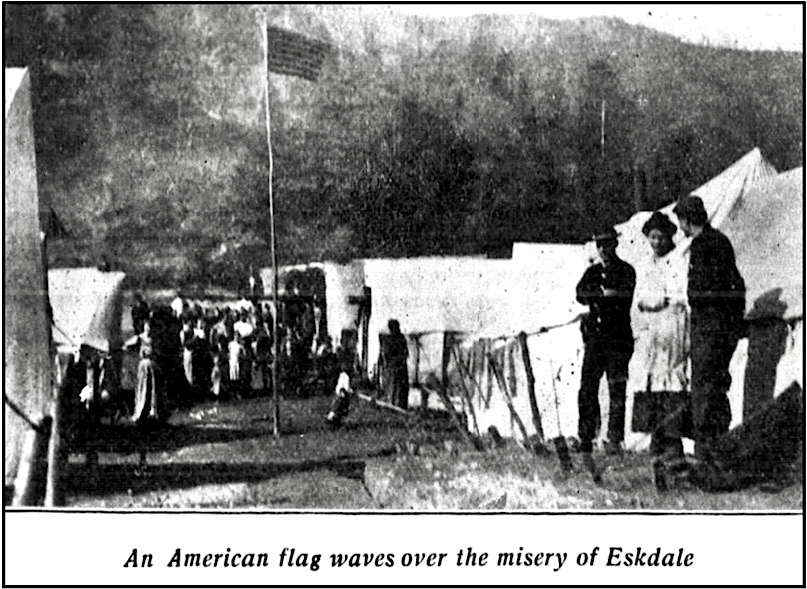
THERE was a tremendous excitement in the little village of Eskdale, W. Va.
An American flag waves over the main street of Eskdale (perhaps to give assurance that Eskdale is really in America and not in Russia); but on the same street you see little children barefoot, now in November, because they haven’t any shoes, and you see the families of striking miners, evicted and driven into the highways by the Coal Dukes, living under tents because they have no homes. You are ashamed to enjoy the meager comforts of your hotel room after you have lived a day with the misery of Eskdale.
Two rods from the tents stand the coal hills with their fabulous wealth-the fine tables set by nature for all her children and yet within sight of the feast they are starving.
Well, the heart of Eskdale was beating like a trip-hammer. Word had come down through the hills that the governor had declared martial law over the strike district and that the soldiers were coming.
The echoes of gun-shots were rolling down into the valley. They came into Eskdale like the rumble of cannon. Somewhere up in the hills there was another battle on between miners and mine guards-one of those fights that make the quickly-dug, rude graves that you can find in lonely places in the coal hills.
Oh, yes, it’s lawlessness all right. But you can see it and hear it and some people can understand it. For years and years West Virginia has been ruled by respectable, invisible lawlessness which controlled courts, ran the legislatures and elected United States senators and is now responsible for the barefoot little children and the homeless exiles in the tents.
The soldiers were coming.
It runs through Eskdale’s mind that what it wants is a living wage, justice and fair-dealing and here the governor was sending the soldiers.
The shot echoes crashed without pause down the valley, waking sleeping babies under the tents and arousing strange stirrings in the hearts of the men and women of Eskdale, needing bread, but hungering only for freedom.
And then the distant toot of the engine which was pulling the martial law special and the soldiers, broke upon the village. Eskdale crowded to the railroad track. The train rumbled past toward the depot.
In the first car were the soldiers, guns held firmly in front of them, ready for work.
And in the second car-
“Scab, scab,” cried a boy, shrill-voiced.
He pointed at a window in the second car-at a face, soiled, weary-eyed, unshaven, crowned with a battered hat. And behind this face there was another and another-a whole car-load of such faces.
“Scab, scab”-the men and women took up the cry. They could not understand that these men were like themselves the dupes of the system.
Martial law had come into the strike zone with a shipment of strike-breakers whom it was protecting, with orders to shoot to kill if one of them was molested. The state of West Virginia had become a strike-breaking agency.
And to the inhabitants of its hills, the state had given so little protection through all these years. They had asked for laws that would emancipate them from the tyranny of the mine guard system-and had been denied. They had asked for compensation laws that would protect their families against the consequences of fatal accident in the mines-and had been denied.
And here were the strike-breakers come to take their jobs and to live upon their hills under protection of their militia.
“Scab, scab,” they jeered.
[Hunger Squad Pitched Against Hunger Squad]
I was there and spoke to the strike-breakers-men and boys recruited from the hunger squads of the East Side of New York, none of them miners, weary with the futile search for work at their trades, and desperate enough to throw themselves at adventure as strike-breakers for the sake of a job.
The despair of hunger, you see, knows no state lines. It recruits the strike-breaker in New York. It scourges to violence the striking miner of West Virginia. Hunger squad is pitched against hunger squad.
Continue reading “Hellraisers Journal: From The Coming Nation-Alfred Segal: Striking Miners Are Winning the Fight at Eskdale, West Virginia” →
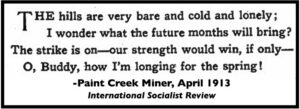 —————
—————
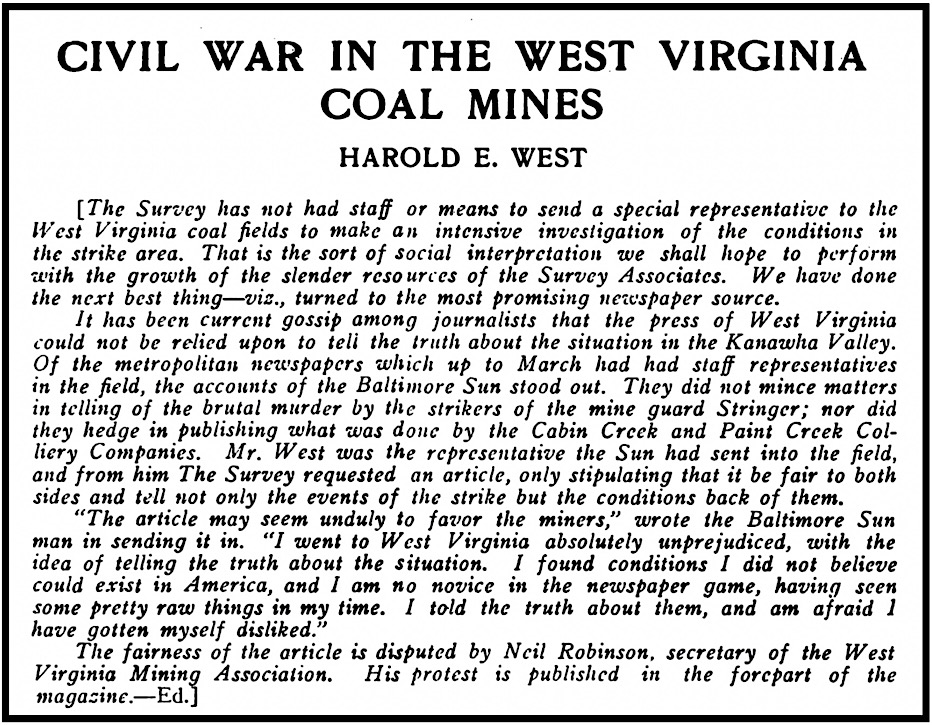
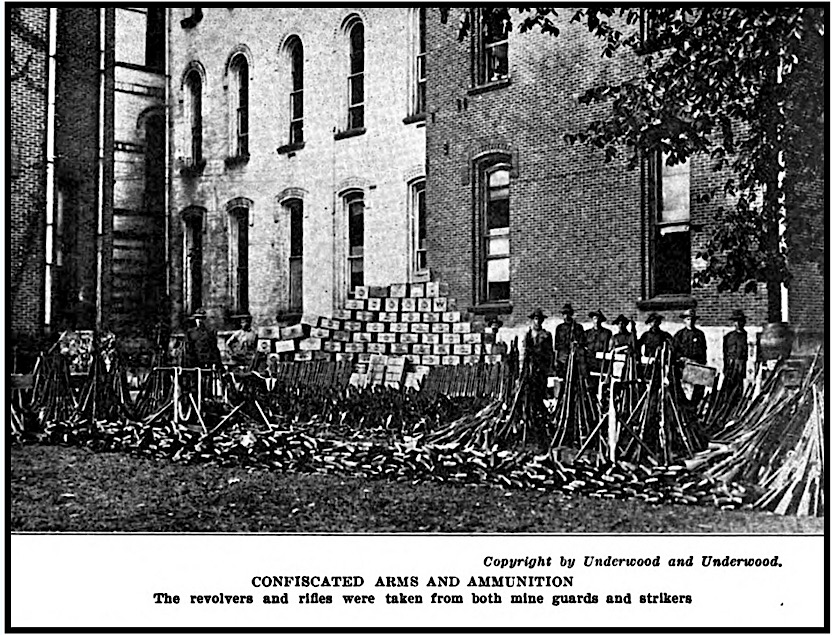
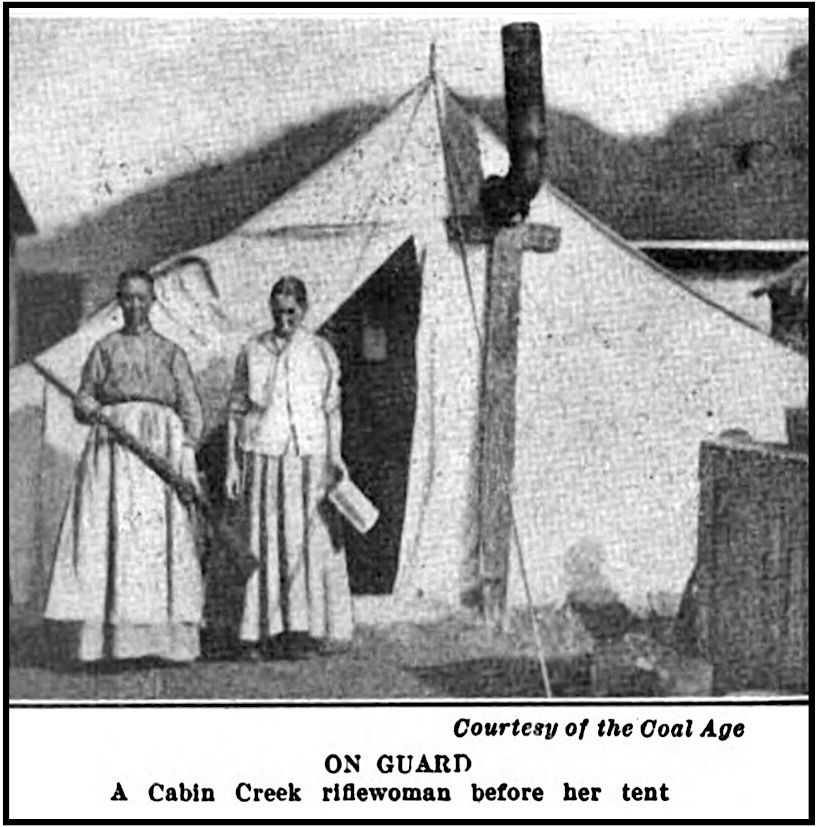
 —————
—————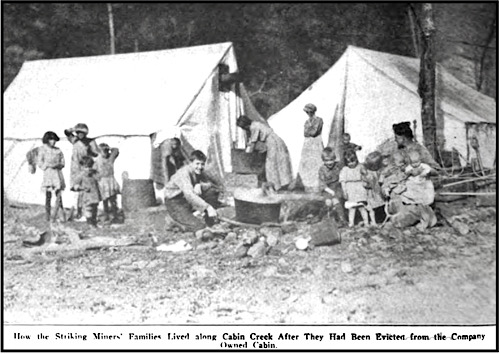
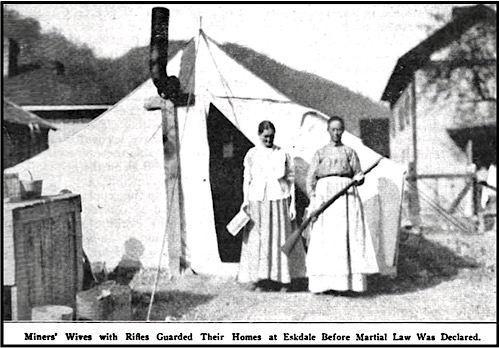
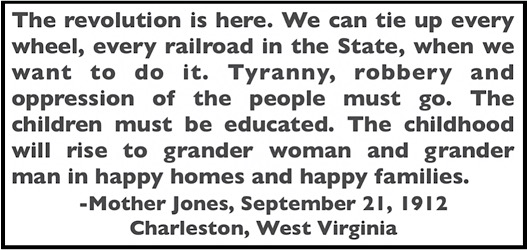 —————
—————